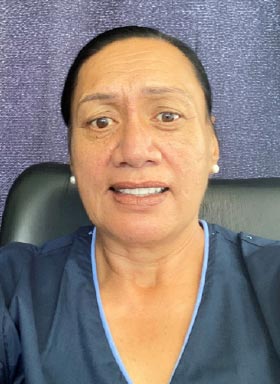
Māori nursing began with the arrival of our waka in Aotearoa. The date of first settlement is a matter of debate, but current understanding is that the first arrivals came from East Polynesia in the late 13th century. Māori health and wellbeing practices included tohunga rituals and medicinal remedies specific to particular hapu.
Nursing history indicates the first hospital was established in Auckland in 1850. There were also informal cottage hospitals run by untrained women, some little more than domestic servants, where able-bodied patients were expected to look after the others.1
Nursing history reminds us of the many events that have moulded contemporary nursing. There is too much history to remember it all, so we make choices about what is worth remembering. Significant events include those that resulted in great change for large numbers of people, but significance also depends on one’s perspective and purpose.
Today we can celebrate the progress of the nursing and midwifery professions and the significant contributions and events nurse leaders and nursing organisations have made and navigated during the 20th and 21st centuries. Nursing is a noble profession, constantly enlarging its body of knowledge and enhancing its education. Nursing conceptualises and focuses on the whole patient, thereby setting itself apart from other disciplines. As nurses and midwives, we must take time to look at our own philosophies and what we would like to attain as nurses, and both the obvious and subtle differences we can make.
As nurses, we have an important and integral part to play in ensuring health care and health equity for all…
My nursing career has been shaped by many factors. It began in 1993 in Northland. I was asked to be the Northland Polytechnic representative on NZNO’s National Student Unit (NSU). It was a very challenging but interesting time: cultural safety was a topic of political interest, and concepts of health policy, such as the improvement of education and regulation, were to the fore. As a Māori nursing student, the words that ran through my head were te ao hurihuri – the unknown.
In 1994-95, I became chair of the NSU and lobbied for a bicultural perspective and to incorporate Tiriti o Waitangi principles within the structures and frameworks of NZNO. It was a rewarding time to part of a diverse team in strengthening Te Rūnanga (TR) and working to establish Te Rūnanga Tauira. Some highlights of that time included my NSU role, being TR vice chair and the TR representative on the board of directors (1997-2004), being an active member of the Nursing and Midwifery Advisory Committee (NMAC), the Nursing Education Research Foundation (NERF) and the editorial committee of Kai Tiaki Nursing New Zealand.
Presenting at the South Pacific Nurses Forum in Tonga in 2014 is a treasured highlight. My presentation, Walking in two worlds, conceptualised “Mana-A-Ki” (Manaaki) and advocated for Māori nursing. I received an NZNO leadership award in 2009 and was also endorsed as a nurse practitioner (NP) whānau ora that year. My career has evolved further and today I am the secretary of the Rural General Practice Network, a fellow of the College of Nurses Aotearoa (CONA), an interview panelist for the Nursing Council, a member of the Northland NP leadership group and, in that role, a mentor for aspiring NPs.
The development of my nursing career and its highlights can be attributed to the stepping stones provided by NZNO and, later, the CONA. Being part of NZNO enabled comprehensive and extensive learning. I have had a privileged nursing career, filled with great experiences and achievements. My confidence has grown, as has my awareness that greater investment in health and the variables that affect health outcomes is needed.
Nurses have opportunities to enable good health care and to make major and subtle differences to people’s lives. Along your professional pathways, I implore you to have fun and find joy in what you do. Health-care coverage does not guarantee high-quality health care. Health equity – that everyone has a fair and just opportunity to be as healthy as possible – is an issue in virtually all health-care systems. But without health care, health equity is impossible to attain. As nurses, we have an important and integral part to play in ensuring health care and health equity for all – this is one of the most important differences we can make. Kia kaha e hoa ma.
“Ehara taku toa i te toa takitahi, engari kē he toa takitini.
My success should not be bestowed onto me alone, it was not individual success but the success of a collective.”
Rhoena Davis, RN, BHSc, PGDipBus, MN(hons), NP, is a community nurse practitioner at Whangaroa Health Services Trust, Kaeo, Northland.
Reference
- HealthTimes. (2015). History of Nursing in New Zealand.



